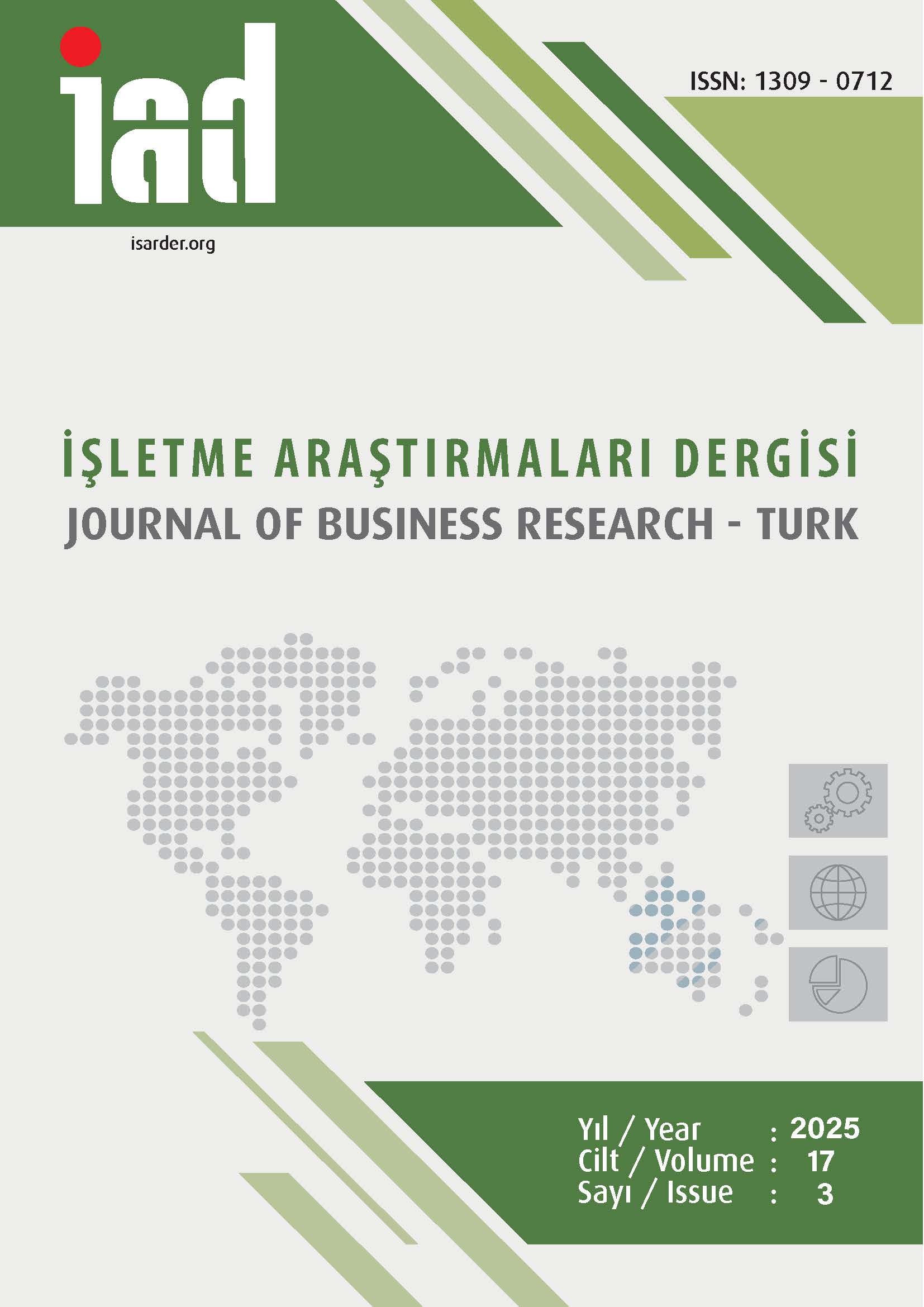Gıda Denetim Açıklamalarıyla İlgili Tüketici Karmaşasının, Tüketici Şüpheciliği ve Kaçınmasına Etkisinin İncelenmesi
DOI:
https://doi.org/10.20491/isarder.2025.2082Anahtar Kelimeler:
Gıda denetimleri- Tüketici karmaşası- Tüketici şüpheciliği- Tüketici kaçınmasıÖzet
Amaç – Günümüzde gıda denetimlerinin kamuya açıklanması, tüketiciyi koruma ve haksız rekabeti engelleme gibi amaçlarla ülkeler tarafından kullanılan yöntemlerden biridir. Bunların tüketiciye etkilerine yönelik pazarlama yazınındaki araştırmalar kısıtlıdır. Bu araştırmada, gıda denetim açıklamalarıyla ilgili tüketici karmaşası, denetim raporu açıklanan işletmeye yönelik tüketici şüpheciliği ve bu işletmelerden kaçınma arasındaki ilişkileri ortaya koymak amaçlanmaktadır.
Yöntem – Araştırma hipotezlerini test etmek üzere nicel saha araştırması gerçekleştirilmiştir. Kolayda örnekleme ve online anket yöntemiyle 313 tüketiciden birincil veri toplanmış ve elde edilen veriler SPSS ve AMOS programlarıyla analiz edilmiştir.
Bulgular – Araştırmada, öncelikle önemli oranda tüketici karmaşası ve tüketici şüpheciliği yaşandığı, büyük oranda tüketici kaçınmasının olduğu ve büyük çoğunluğun gıda denetim açıklamalarını yakından takip etmediği tespit edilmiştir. Araştırma neticesinde, tüketici karmaşasının tüketici şüpheciliği ve kaçınmasını pozitif etkilediği, tüketici karmaşasının tüketici kaçınmasına etkisinde tüketici şüpheciliğinin aracı rol üstlendiği belirlenmiştir. Buna göre gıda denetim raporu açıklanan işletmeye yönelik tüketici şüpheciliğinin, tüketici kaçınmasını yüksek düzeyde etkilediği anlaşılmaktadır.
Tartışma- Araştırma sonuçları, gıda denetim raporu açıklamalarına yönelik karmaşanın, tüketicileri işletme aleyhine olumsuz etkilediği, bu etkide tüketici şüpheciliğinin önemli rolü olduğunu göstermektedir. Bulgular şüpheciliğin kaçınmaya etkisi bakımından yazındaki araştırmalarla benzerlikler göstermektedir. Diğer taraftan, işletme karşıtı mesajlarla ilgili algılanan karmaşanın da işletme için olumsuz etkileri olabileceğini ortaya koyması bakımından bulgular özgündür. Araştırmada son olarak gıda denetimlerinin etkinliğini artırmada öneriler geliştirilmektedir.
İndir
Yayınlanmış
Nasıl Atıf Yapılır
Sayı
Bölüm
Lisans

Bu çalışma Creative Commons Attribution-NoDerivatives 4.0 International License ile lisanslanmıştır.





